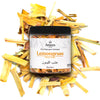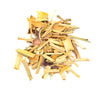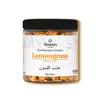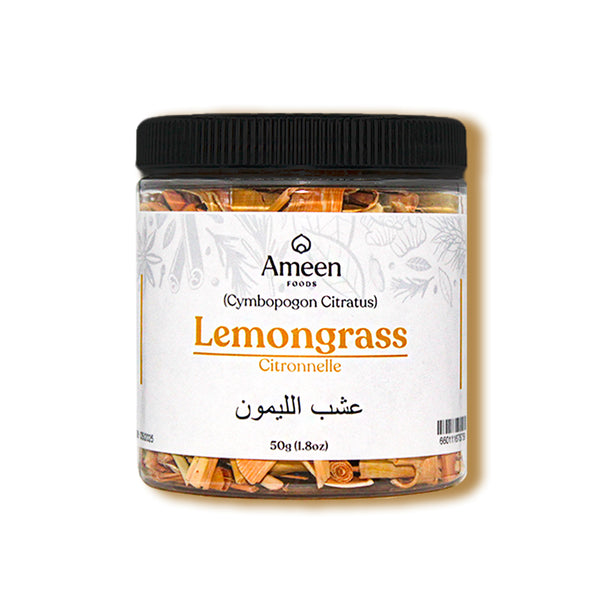Lemongrass, derived from the Cymbopogon plant, is a celebrated herb deeply rooted in Asian culinary traditions and holistic wellness practices. Revered for its refreshing, citrusy aroma and mild, sweet flavor, lemongrass is a cornerstone ingredient in Thai, Vietnamese, and Indonesian cuisines, offering a distinct lemony essence without the sharp acidity of citrus fruits.
Culinary Applications: A Vibrant Flavor Enhancer
In the kitchen, lemongrass brings a bright, aromatic flavor to a variety of dishes. Its unique profile enhances soups, curries, teas, and marinades, infusing them with a subtle yet unmistakable zest. The lower stalk is often finely chopped or ground into pastes, while the upper stalk is used to create aromatic infusions in broths or beverages. Its versatility and vibrant flavor make lemongrass a must-have for authentic Southeast Asian cooking.
Wellness Benefits: Traditional and Aromatic Uses
Beyond its culinary appeal, lemongrass is treasured for its therapeutic properties.
- Traditional Remedies: Long used in herbal medicine for its anti-inflammatory, antibacterial, and digestive-supporting properties.
- Aromatherapy: Lemongrass essential oil is known for its soothing, stress-relieving qualities, promoting relaxation and a sense of well-being. Its invigorating scent is often used in diffusers, candles, and massage oils.
Botanical and Cultural Identity
- Botanical Name: Cymbopogon
- Common Names: Citronella Grass, Barbed Wire Grass, Cochin Grass, Malabar Grass, Lemongrass, लेमनग्रास, لیمون گھاس, シトロネラグラス, 茅草





